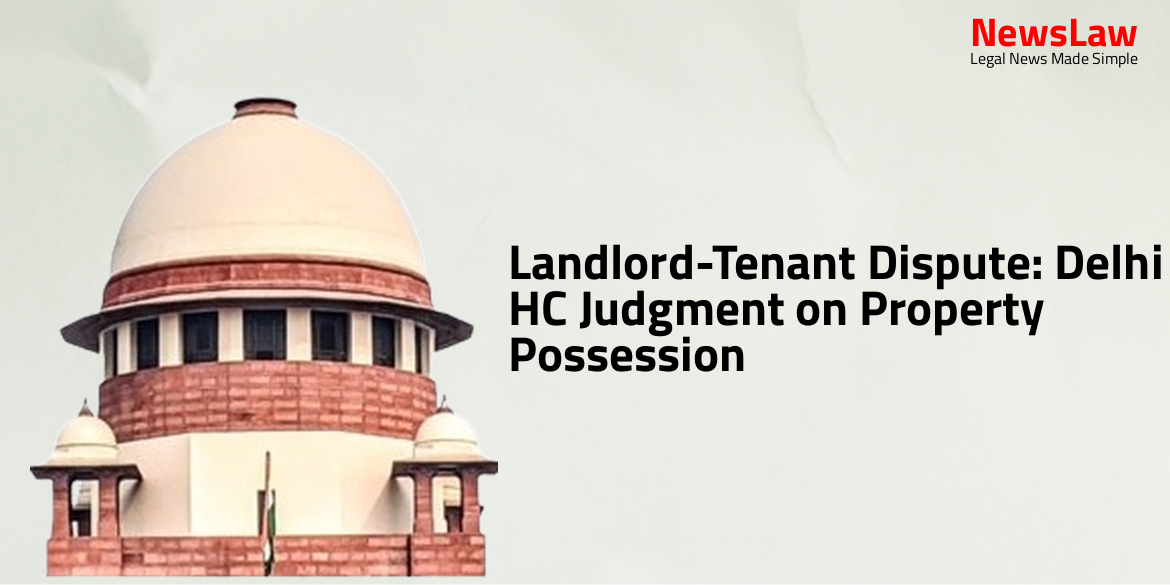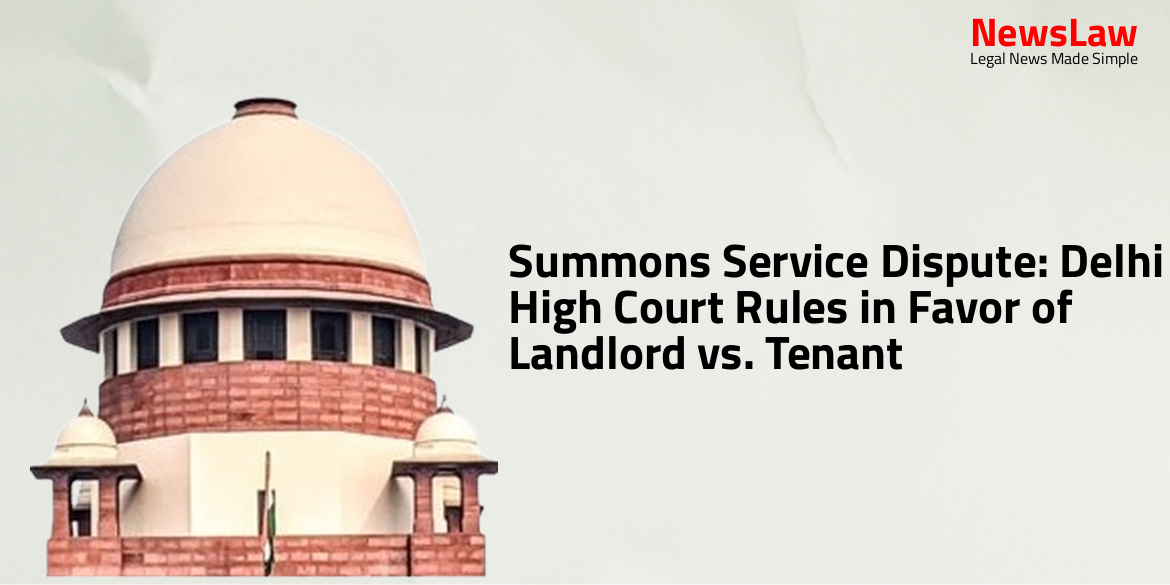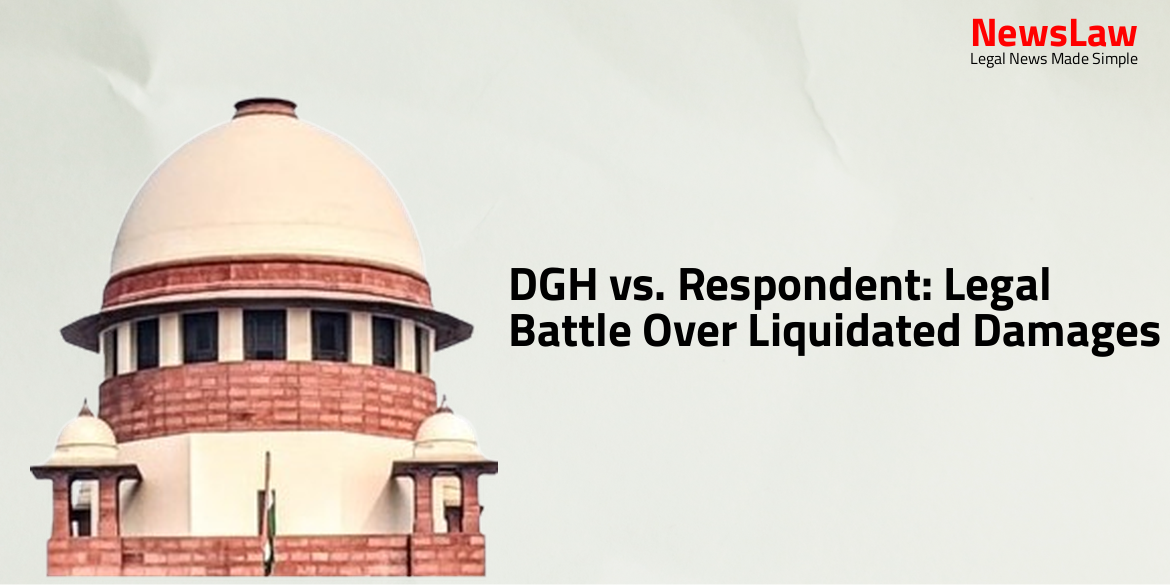In a significant legal case before the Delhi High Court, a judgment was passed regarding a property possession dispute involving the respondents and petitioners. The court’s decision favored the respondents, emphasizing their genuine need for the property for residential purposes. This ruling showcases the importance of upholding landlord-tenant relationships and the bona fide requirements in such cases.
Facts
- Respondent No.1 has two sisters who visit him regularly with their families.
- The respondents require the tenanted premises for themselves and their family members’ use as their residence.
- The respondents do not have a rental agreement or receipts for their current residence in New Rajinder Nagar, which is difficult to access due to being on the third floor.
- They are facing a possession suit for their current residence and hence wish to shift to their own house for convenience and economic reasons.
- The petitioners have never paid rent to the respondents and do not consider them as their landlords.
- The tenanted premises is being used for commercial purposes by petitioner No.1, running a shop called Rexine House.
- The property tax reflects the commercial use of the tenanted premises.
- There is available accommodation behind the tenanted premises suitable for residence by the respondents.
- A similar eviction petition was filed against another tenant in the same property who occupies more space than the petitioners.
- Respondent No.1 previously owned a property in Karol Bagh which was sold, but this was not disclosed to the court.
- The respondents currently reside in a rented accommodation in New Rajinder Nagar with limited space for their children’s studies.
Arguments
- The petitioners argue that the learned ARC exceeded its jurisdiction by going beyond the scope of section 25B (5) of the DRC Act.
- The petitioners allege that the claimed bona fide need of the respondents is actually mala fide.
- The petitioners contend that the respondents failed to provide any medical documentation to support their claim of difficulty in climbing to the third floor of their residential accommodation.
- Despite the petitioners’ arguments, the learned ARC determined that a landlord-tenant relationship existed between the parties, allowing the respondents/landlords to file the Eviction Petition as they were both the owners and landlords of the tenanted premises.
- The Respondent states that the residential accommodation available with another tenant is sufficient for the residence of the respondents.
- The respondents have been in actual physical possession of the accommodation since June 2021.
- The Respondents have been using the tenanted premises for commercial purposes and not solely for residential purposes as alleged by the petitioners.
- The Respondents claim to be the actual owners of the property despite it being in the name of Ms. Pooja Mehta due to a benami transaction.
- The Respondents have filed written submissions disputing the claims made by the petitioners.
- The learned ARC was deemed to be wrong in concluding that the petitioners failed to raise any triable issue.
Analysis
- The court found that the respondents were not in occupation of the property at F-444, New Rajinder Nagar, New Delhi.
- It was established that Ms. Pooja Mehta and late Shri Ram Lal Kakar were not colluding in the suit controversy.
- The court discussed various aspects related to rent revision petitions and the DRC Act.
- The court emphasized that the landlord-tenant relationship and the bona fide requirement of the landlord must be considered.
- The court highlighted that the tenant cannot dispute the title of the landlord or the landlord’s successor.
- It was determined that the need for the tenanted premises by the landlords was bona fide.
- The court also referenced a case where it was confirmed that once a tenant, always a tenant until ownership is transferred.
- The court noted that the respondents had failed to raise any reasonable triable issues to warrant leave to defend.
- The court concluded that the tenanted premises were required bona fide for the landlords and their dependent children as their residence.
- The needs of the landlords were deemed genuine and not whimsical or fanciful.
- The landlords were only required to demonstrate a title superior to that of the tenant.
- The court considered the sale of shares in the tenanted premises by the daughters to their mother as part of the analysis.
- The learned ARC correctly dismissed the leave to defend application.
- The learned ARC rightly appreciated the settled law and the facts of the case.
- Observations from R.C. REV Controller-I, Central District, Tis Hazari Courts, Delhi are considered.
- Eviction at Laxmi Rani Dwar Marg, Karol Bagh, New Delhi in favor of the respondents is upheld.
- The eviction order is against the petitioners.
Decision
- The court found that the conduct of Petitioner A was in violation of the RPC.
- The court held that Petitioner A failed to act in the best interests of the clients.
- Petitioner A’s actions were deemed to be unethical and in breach of professional conduct standards.
- Based on the evidence presented, it was determined that Petitioner A’s behavior warranted disciplinary action.
- The court emphasized the importance of upholding ethical standards in the legal profession.
Case Title: SHYAM SUNDER BATRA & ANR Vs. GIRISH KAKAR & ANR (2024:DHC:4042)
Case Number: RC.REV.-178/2018



